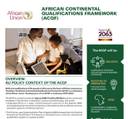We present the impact on learner outcomes of a province-wide Grade R mathematics intervention (termed RMaths) in relation to theoretical frameworks established from a meta-evaluation of evaluations of education interventions in South Africa and a review of other meta-evaluation and synthesis studies. We compare the changes in Mathematics performance from baseline to end line, of learners in the intervention group (taught by R-Maths-trained teachers/practitioners) to the comparison group (learners in schools in the same districts, but whose teachers/practitioners had not yet received the R-Maths intervention). The intervention group performed 2.9 percentage points better than the comparison group over the whole Marko-D test of mathematical competencies, with a small effect size. The greatest effects on performance were from language of learning and teaching, and district. The R-Maths case indicates that a modified cascade model which includes some elements of Fleisch’s “educational triple cocktail” (structured learning materials, teacher training, and support) may be successful by working with, and through, department of education structures. Whether the effects are retained over time and if these effects can be replicated in different contexts is not yet known.
Capacity of government and communities to save lives: The role of education systems in responding to COVID-19 and other threats
Trialogue recently hosted a CSI forum which explored some of the ways to support teacher development. Attached, please find presentation from Dr. Nick Taylor representing JET Education titled Priorities for teacher development - What can corporate donors do? Trialogue publications, including the current edition of the Trialogue Business in Society Handbook, are available for complimentary download from ther website: https://trialogue.co.za/publications/
Jansen, J and Taylor, N. (2003). Geneva: World Bank.
Skills and qualifications of the people in Africa are at the heart of African renaissance. Therefore, the African Continental Qualifications Framework (ACQF) is a vital policy of the African Union. Development of the ACQF is underway (2019-2022). The African Union Commission (AUC) is partnering with the European Union (EU), the Deutsche Gesellschaft für Internationale Zusammenarbeit (GIZ) and the European Training Foundation (ETF), in developing the African Continental Qualifications Framework (ACQF), a key output of the “Skills for Youth Employability Project” (SYEP). JET Education Services (JET), was appointed to undertake the first part of the AQCF development process, namely the mapping study of qualifications frameworks in Africa aligned to the African Union’s (AU) “Agenda 2063: The Africa We Want”. See the ACQF factsheet infographic.
Joint Education Trust (1995). Johannesburg: Joint Education Trust.
Bloch G, Darrell L, eds. (1995). Johannesburg: Joint Education Trust.
Vinjevold P. ed. (1996). Johannesburg: Joint Education Trust.
Early Childhood Development
Valla V. (1996). Johannesburg: Joint Education Trust
Sehoole, MT. (1996). Johannesburg: Joint Education Trust.
Adult Basic Education and Training
September J and Sedibe K. (1997). Johannesburg: Joint Education Trust.
Diphofa M. (1997). Johannesburg: Joint Education Trust.
New Partnership Projects in Progress
Perold H and Omar R. (1997). Johannesburg: Joint Education Trust.
The Education Debate: Curriculum
Perold H. (1998). Johannesburg: Joint Education Trust.
Higher Education, Job Creation & Workforce Development












